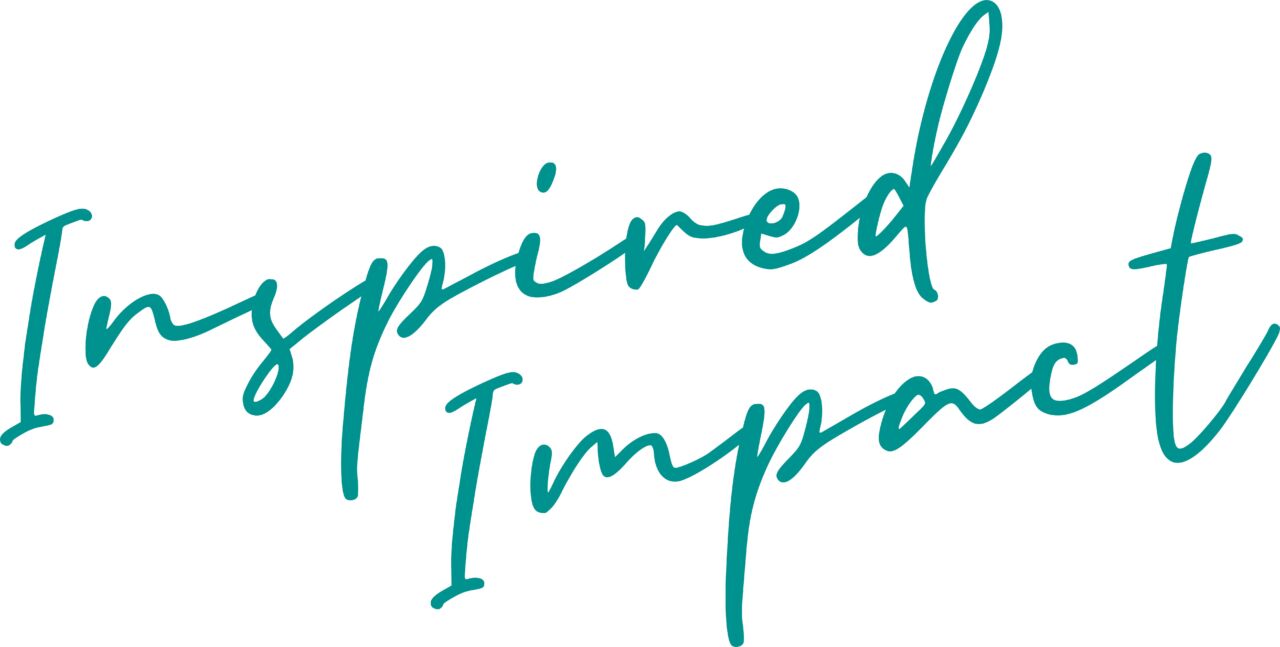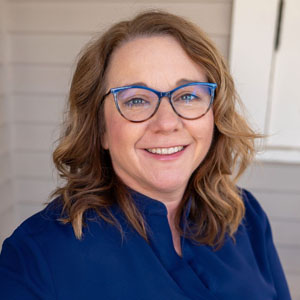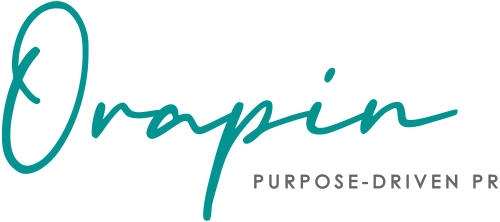
Interviews with purpose-driven leaders who are dedicated to helping others and making a positive impact in the world.
April 11, 2024
Jamalyn Peigh Williamson | Project Rouj

Jamalyn Peigh Williamson is the Founder and CEO of Project Rouj based in Zionsville, IN and Fondwa, Haiti. Follow on Facebook and Instagram and learn more at projectrouj.org.
TELL US, WHO ARE YOU AND WHAT DO YOU DO?
I’m Jamalyn Peigh Williamson of Project Rouj (formerly Zanmi Fondwa). We help improve the future of Haitian families, one house at a time. We hire local workers in Fondwa, Haiti, to build houses for their neighbors. In the process, we help families find jobs and help the economy by paying living wages while giving people livable housing.
We’re Project Rouj because the houses we build have unique red roofs. Looking out onto the valley and throughout the community, you can see our homes’ red roofs popping up.
HOW DID YOU GET HERE?
My husband Dave and I attended divinity school at Duke University. We’re both United Methodist pastors. I took a class called Healing in the Third World, where we looked at medicinal and spiritual healing in underdeveloped countries. Part of that was a trip to Haiti including the town of Fondwa. I really loved it there. I felt like I was being nudged to continue working there. In the meantime, I had another class called God and Country taught by Peter Storey, a visiting professor from South Africa who was the president of the South African Council of Churches during the apartheid movement. He worked together with Desmond Tutu to try and end apartheid by representing churches. Through the class, he helped us understand the responsibility that pastors have in the United States because of our country’s wealth, and how we’re called to help our congregants understand that we’re really one body.

Jamalyn Peigh Williamson is the Founder and CEO of Project Rouj based in Zionsville, IN and Fondwa, Haiti. Follow on Facebook and Instagram and learn more at projectrouj.org.
He said, “When the White House sneezes, the rest of the world gets the cold.” He noted that if it was a hard statement for us to understand, we probably needed to spend some time outside of the country to realize the influence that the United States has on the rest of the world. I didn’t know what he was talking about, so I told Dave I thought I needed to leave the country after graduation. One of my professors had started an organization in Haiti and wanted somebody to live in Fondwa. It was the community I felt most attached to, and soon Dave and I were being introduced as his new missionaries. That was more than 20 years ago.
We got married in January of 2003 and then we moved to Haiti in August of 2003. We thought it would be a beautiful idea to move to a country where the majority of people do not speak English. We did that for two years, then I returned every year or so with other people. It wasn’t until the earthquake of 2010 that I really started to understand what my life’s work was going to be. We had gone to the Protestant Church earlier that day, and I had this moment 15 minutes after the earthquake, looking at the Church that was now a pile of rock and rubble. I remember saying to myself out loud, “It’s like two steps forward, 20 steps back around here.” Just when you start to make some progress, something happens.
We began to fully understand the need for houses after the earthquake when we spoke with a connection, Lucknar Raymond, who is now our director of operations. He used to translate for us and went to college to get a degree in communications. On a trip to Haiti, Luknar and I started to dream about an organization that would be strategic about what we were doing. He did a whisper campaign with locals, to find a project that would help families. Everyone kept saying, we want them to build houses. We didn’t have a grand idea of what we wanted to do, we just wanted it to fill a gap.
WHAT DO YOU STAND FOR? WHY IS THIS WORK IMPORTANT TO YOU?
I stand for compassion. I really believe that we’re all called to open our arms as wide as we can. I want to be able to show compassion to the mother and father in Fondwa who struggle so much to provide for their family that they can’t provide a roof that doesn’t leak. I trying to help create stability for parents who are desperately trying to figure out how to keep their kids dry during the rainy season. I’m not even trying to figure out how to help them send their kids to school; I’m just trying to get them off of dirt floors or give them an indoor bathroom so their children aren’t bathing in their front yard.
I’m trying to create a way forward with what social capital I have been blessed with, in the community where I live. That all goes back to having a really strong understanding of what compassion looks like. I could just as easily give $5,000, but I really want to be in a relationship with the people that we’re serving. I think that’s the difference between generosity and compassion. I can be generous, but I really want to understand the people we are serving. I want to know more than just whether they have a roof over their head that keeps them dry. I want to know how many people are in that family and what happened to them after they got the house.
WHAT IMPACT ARE YOU MAKING?
We launched the organization in 2018. In Fondwa, around 217 families were in desperate need of a house, and we are almost halfway done fulfilling that need. Our goal was to build 40 houses in three years. We met that goal and will have built more than 100 by the end of the year. We estimate that there are at least between 250 and 300 people living in the homes, and we also are the largest employer in the community. We employ approximately 125 to 150 people, paying them a regular salary. They’re able to take that money to the market and pay for their kids to go to school, so other people are benefitting in the community. We also buy 100% of our materials in the country. We estimate that we have spent more than $2 million buying construction materials. We don’t really know what our economic reach is, but it’s the hardware store owner or block factory workers who also benefit, and goes all the way down to the woman who cleans our office weekly. We’ve been able to create jobs far beyond what we set out to do. The houses, in some ways, are the byproduct of the work we’re doing. The important work we’re doing now is employing people and creating an economic opportunity for them to be able to provide for their families and pay it forward in so many different ways.
WHAT (OR WHO) INSPIRES YOU TO DO THIS WORK?
To do this work in Fondwa goes back to those relationships that we built in the two years that we lived there. This is a really personal mission. I feel like this is my second home. For years, I saw people in Fondwa more than I saw my own siblings. It’s not until these last three years, when the government stability in the community has gone in the toilet, that I haven’t been able to travel. Up until then, I would say my inspiration was a collective community. I want to get up because I know that the families are depending on us. Dave and I have been blessed to have a beautiful home, and we feel like everyone deserves the opportunity to have that security and be able to thrive, versus wondering how to keep the roof from falling in.
When we started building homes, we asked them what kinds of things they wanted for their house. We added indoor bathrooms. No one in Fondwa has those except Project Rouj houses. We added kitchens with counters that can be cleaned with good ventilation, so they don’t have to cook outside squatting over the fire. Every house has a water cistern as well. The houses have three bedrooms with a wrought-iron porch so they can lock it. When we give them keys to their houses, it’s the first time they’ve ever had a house that locks without a padlock.
WHAT’S YOUR VISION, YOUR BIG DREAM FOR THE IMPACT YOU WANT TO MAKE?
We would like to take this playbook from Fondwa and use it for the next community in Haiti in three to five years. It would have to be in a place where we currently work and have connections because it takes a few years before we can even start doing work there. Our vision is just to keep building – keep hiring people, keep developing opportunities for people to have work. We have a leadership team in Fondwa who determine who gets the house. If you are selected to be in the program, you have to show proof of residence, proof that you own the land. They take classes, they eat together, they put in sweat equity, they pay for a small portion of the house.
The bigger dream is to figure out how we could endow what we’re doing. Right now, it is 99% Haitian-led. Three of us work for Project Rouj in the U.S., and we handle operations, banking, and raising money. Everybody else is in Fondwa. The dream is to endow it so it’s a board-led operation and keep it financed through the endowment.
WHAT CHALLENGES ARE YOU FACING?
There are two big challenges. Although things are very quiet and we’re able to work, the country itself is not safe. The capital in Port au Prince is under siege. That’s the biggest challenge. One of our policies is that Americans do not build houses. We are not an organization where a church could call us and ask to take a group down and build a house in a week. That’s not what we do. We don’t take jobs from Haitians. We feel like we’re doing this amazing work that everyone should be learning about and hearing about, and it brings so much hope to those of us who get to work around it every day. But at the same time, all of that hope gets drowned out by the noise that is happening in Port au Prince. That can be really frustrating.
Another big challenge is that I’m not a full-time director of development. We don’t really want our organization to expand, so we don’t need a huge development team. We are still trying to keep our expenses as low as possible while raising money, so that can be really challenging.
WHAT’S ONE THING YOU WANT PEOPLE TO KNOW ABOUT YOUR CAUSE AND/OR THE WORK YOU’RE DOING?
One of the things we like to say is we do less than most charities. We really try to stay out of the way of doing the work. What we want to do is create opportunities and be able to pay Hatians a living wage so that they can help fix their community. They don’t need us to fix their community, they just need a little help so that they’re able to do it themselves. They know what’s best; they live there, and they are the ones dealing with it day in and day out. I want people to know that when they give a donation to us, it almost immediately turns into a job salary or a concrete block. We are actively trying to create transformation for generations, not just for a year or two. These houses will last a really long time. This is work that’s being done every single day and their dollars get put into action immediately.
DO YOU HAVE A FAVORITE QUOTE OR WORDS OF INSPIRATION TO SHARE?
There is a saying that Luckner Raymond, our director of operations says a lot: “This is life.” When something happens in Haiti, he will say, “This is life.” It’s his way of accepting the situation that he has found himself in. He uses it as “It is what it is.”
I prefer to think of it as how fortunate we are. The inflection changes it to two totally different things. Haitians have had to hear people say how resilient they are, but they shouldn’t have to be. They’ve had a hundred years of people pounding on the doorstep making life tough for them. I’m hoping that someday, “This is life” will make them realize how fortunate they are.
HOW CAN OTHERS SUPPORT YOU OR YOUR CAUSE?
We really do depend on the generosity of others. Our budget is about $620,000 a year. People can make donations at our website. We really love it when people join our “Raise the Roof Monthly Giving Club” because that helps us be able to know what we can and cannot do. We love it when people join our email list so they can keep up with what we’re doing or follow us on social media. And for people to continue to keep Haiti in their prayers, their thoughts, their good vibes, or whatever they choose. I think the situation that Haiti is in right now is going to take a breakthrough of a miracle. It’s very dire right now. I believe in my faith that only God can probably fix it, or lead someone to help fix it.
At Orapin, we believe those who are working for the greater good should be known, supported, and celebrated. We help purpose-driven organizations generate consistent media coverage and thought leadership opportunities to increase awareness, influence, and impact. If would like to be featured in INSPIRED IMPACT™, reach out to hello@orapin.co.

